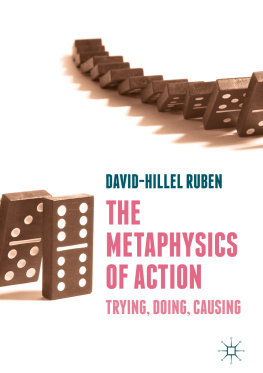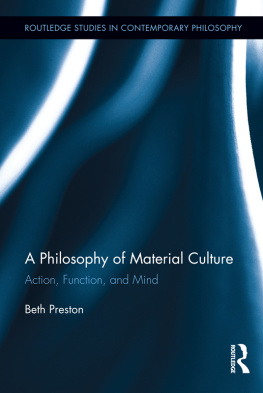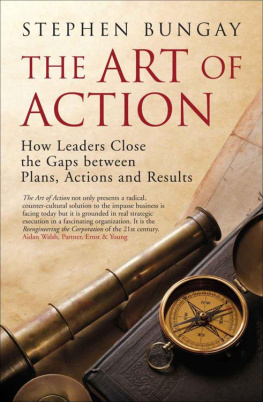1. Introduction
I intend to use this introduction as a vehicle for situating the topics discussed in this book within a wider philosophical context, and to describe the main ideas in each chapter. This introduction contains no arguments defending or justifying that context or the presuppositions of my discussion (there will be arguments aplenty about other matters in the following chapters). In theology, a distinction is sometimes drawn between apologetic and confessional theological literature. Apologetic literature seeks to defend a point of view to an audience that is outside the circle of believers; it attempts to convince them of something. Confessional theological literature accepts a point of view as given, but then explains and develops it for those inside the tradition, those who have already bought in to the basic assumptions. This Introduction might be thought of as a piece of confessional philosophy, making explicit some of the doxological presuppositions of the book to the already-believers.
Here is that to which I confess: there is something called analytic metaphysics, a philosophical project of establishing both what exists and what it is like. Further, my confession includes the belief that there is a significant role for analytic metaphysics to play in its application to the theory of action (and to the philosophy of social science more generally). I have long held this belief about analytic metaphysics and its applications to other areas of philosophy, a belief evidenced by my first book, Marxism and Materialism ( Whether I agree with their views or not, I recognise that they are doing, in whole or in part, what I am also trying to do in this book. I admire much of their work.
I can identify at least two stands to the project of analytic metaphysics; the dividing line between them is not sharp. (Im a big fan of both strands.) The first strand is ontological: are there objects independent of minds, simples, complex objects, mereological sums, tropes, universals, sense data, abstract objects, or four-dimensional objects? The main tool of this strand is what we might call ratiocination. Typically, such items are shown to exist or not to exist by a priori argument. It makes no difference that The Man on the Clapham Omnibus has never heard of such things, and so doesnt talk or think thoughts about them. That bus-rider will have heard of tables, chairs, and the like, but a trope, or the mereological sum of two arbitrary objects, will come as news. By that, it might be meant that they do not accord with pre-analytic ontology. If so, the criticism does not move me much. I suppose that other things being equal, such accord would be desirable. But things are never equal, or anyway hardly ever. I believe that philosophy often comes to truths about what exists that are strange to the ears of the uninitiated.
A second strand (call it metaphysics proper) attempts to uncover what the entities that we admit into our ontology are like. The aforementioned bus-rider will certainly have heard of action, but he wont necessarily have a view about what an action is . He will also have heard that people try to do various things, and that agents cause things to happen, but he wont necessarily have a view about what is involved by what he hears. One reaction that I have encountered to the three main theses of the book, one on trying, one on the nature of action, and one on causing, is that they are implausible. Again, the criticism does not move me much, unless that charge can be supported by arguments that show that the views are either internally inconsistent or have consequences that are patently false. I cant help but think of Hamlet to Horatio: There are more things in heaven and earth, Horatio, than are dreamt of in your philosophy (Hamlet, 1.5.167168). That may be true of poor Horatios philosophy, but evidently not of Hamlets, nor of mine.
I also intend my discussion in the book to be metaphysical in the following sense. I want to know about actions, causing, and trying, not about the concepts of action, causing, and trying, or about action-, causing-, and trying- sentences, although of course access to knowledge about them must commence with language, commence with thinking about those sentences and concepts, knowing what we say, when and why. I want to explain what I am doing in a somewhat minimalist way in this Introduction, since this question raises profound questions about philosophical method, analysis, logical form, and how analysis and logical form relate. That would be the subject of another book, one that I am not capable of writing.
If one looks at earlier examples of metaphysical analysis-say, what a physical object is or what a social whole is-it is true that philosophers, especially those writing in the middle of the last century, often wrote as if the object of interest is language or concepts. Two striking examples of this are the Appendix to Roderick Chisholms 1957 Perceiving , in which he undertakes to refute phenomenalism, and a well-known article on the relation between the social and the individual by Maurice Mandelbaum (). Chisholms discussion is framed in terms of the logical relations between appearance statements on the one hand and our ordinary statements about physical things on the other (190). Mandelbaums discussion is framed as being about the reducibility of societal concepts to individual concepts without remainder (223). Mandelbaum speaks interchangeably about concepts and facts. It may be that such writers were influenced by the doctrine of semantic ascent, and that this is reflected by their choice of method and the terms in which they set their metaphysical discussion, but it certainly should not have changed their objectives. After all, there could be two sets of statements, S1 and S2, such that, although there were no translations of any statement from one set into statements solely from the other set, S1 and S2 were still about the same things. And there can surely be two distinct concepts, C1 and C2, with the same extension or even necessarily with the same extension (the concepts of trilaterality and triangularity are such an example). So irreducibility of concepts and untranslatability of discourses do not tell us all that we want to know about the metaphysical nature of the world.
But what was really of interest to these and other philosophers who discussed ontological issues, rightly or wrongly, in terms of statements or sentences or concepts, was the question of whether there are such things as, e.g., mind-independent physical objects or social wholes, in addition to appearances or individual entities, and their choice of terminology, in terms of statements and concepts, was only the vehicle with which they thought best to get at those ontological issues. It was perhaps part of the philosophical method of that era to pose such questions in the formal rather than in the material mode, as an accompaniment to the idea of semantic ascent. That is speculation on my part. But whether my speculation is sound or not, I have posed the questions as far as I could in the material mode.
So, since this book is about the METAPHYSICS of action (and NOT about the SEMANTICS of action sentences or the CONCEPT of action), I intend that what I am doing to be about trying, acting, and causing, not about the concepts of trying, acting, and causing, nor about any discourse about them. My goal is to reach results about trying and causing (the phenomena) and about acting (the real-life occurrences), about what these things really are.
It is important to stress this, because the extent to which I do discuss issues about sentences, language, grammar, and so on might strike the reader as somehow at odds with what I have just said. It is part of the tradition in which I work to approach metaphysical and ontological questions often by looking at language, but the goal is not the analysis of the assertions or sentences or concepts, but an understanding of the metaphysics and ontology of the human world to which such discourse commits us. In spite of his talking about definitions of knowledge, Gettier (, I argue that P tries to F iff (if a certain set of conditions are fulfilled, P acts). (Note that one can say this without switching away from the material to the formal mode.) I have certainly adopted the method of looking at language as a way to uncovering metaphysical truths; two good examples are the attention I have paid to questions about imperfective aspect and to the topic of causative alternation. But method is one thing, but goal is another. I spend a fair amount of space and energy thinking about imperfectivity, but my interests are not narrowly linguistic insofar as I do this. Behind the contrast of perfective and imperfective verb aspect lies a distinction between actions-in-progress and actions-as-completed, and that latter contrast is a metaphysical one.






